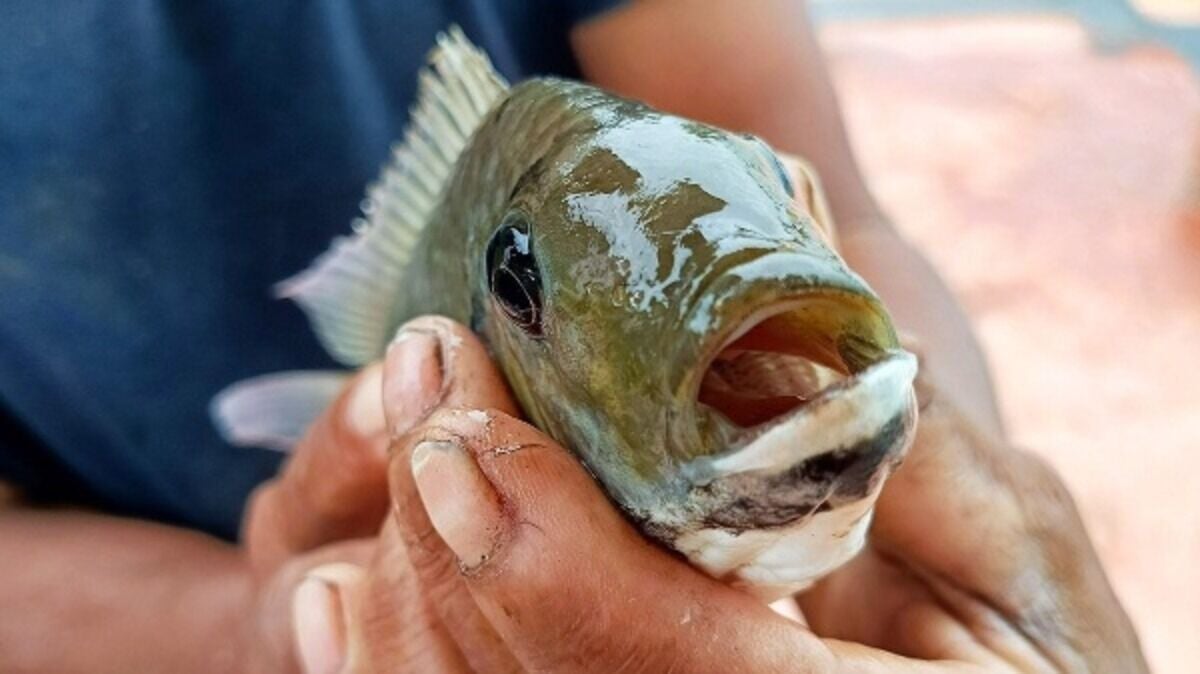Invasive fish in Thailand causes 100 million baht annual damage

Thammasat University research reveals that the blackchin tilapia has caused economic damage to the Praek Nam Daeng community, amounting to at least 100 million baht per year.
The SROI TU Centre for Social Return on Investment Research and Development recently posted a study detailing these impacts.
The research, conducted between 2018 and 2019 by SROI TU, part of the Puey Ungphakorn School of Development Studies at Thammasat University, investigated the localised effects of blackchin tilapia on the Praek Nam Daeng community. This study was part of a local research initiative supported by the Thailand Research Fund.
The Department of Fisheries responded by deploying five species of predatory fish to control the blackchin tilapia population, hoping to mitigate the damage. The blackchin tilapia, considered an invasive species, has significantly affected Thailand’s aquatic ecosystems. Data from 2019 indicate that between 2016 and 2018, the blackchin tilapia severely impacted the economy and ecosystem of Praek Nam Daeng.
In 2016, the community’s fishing revenue decreased by 5% due to the blackchin tilapia. This figure rose to 10% in 2017 and reached 15% in 2018.
Currently, the estimated damage to fishing income stands at around 90%, based on local media sources. The cumulative financial impact from 2016 to the present in Praek Nam Daeng alone is estimated to be no less than 100 million baht per year, based on 2018 fishing income data.
“The blackchin tilapia has wreaked havoc on our local fisheries, and its impact is felt deeply within our community.”
The SROI TU Centre plans to review the data soon to provide a more comprehensive assessment. The full research report is available on the centre’s website for those interested in the detailed findings.
Control efforts
Continued efforts by the Department of Fisheries to control the population of blackchin tilapia include introducing predatory species to the affected areas. This initiative aims to restore balance to the local ecosystem and reduce the economic burden on the community.
“We are hopeful that the introduction of predatory fish will help manage the blackchin tilapia population and alleviate some of the economic pressures faced by our fishermen.”
The blackchin tilapia, native to Africa, has adapted rapidly to Thai waters, outcompeting local fish species for resources. This has led to a decline in native fish populations, further exacerbating the economic losses for communities dependent on fishing, reported KhaoSod.
Efforts to control the blackchin tilapia population are ongoing, with the promise of more comprehensive solutions on the horizon. The SROI TU Centre’s research underscores the need for continued monitoring and intervention to protect both the economy and the ecosystem of affected communities.
“Our research highlights the extensive damage caused by the blackchin tilapia, and we hope that our findings will aid in developing effective management strategies.”
Latest Thailand News
Follow The Thaiger on Google News:


























